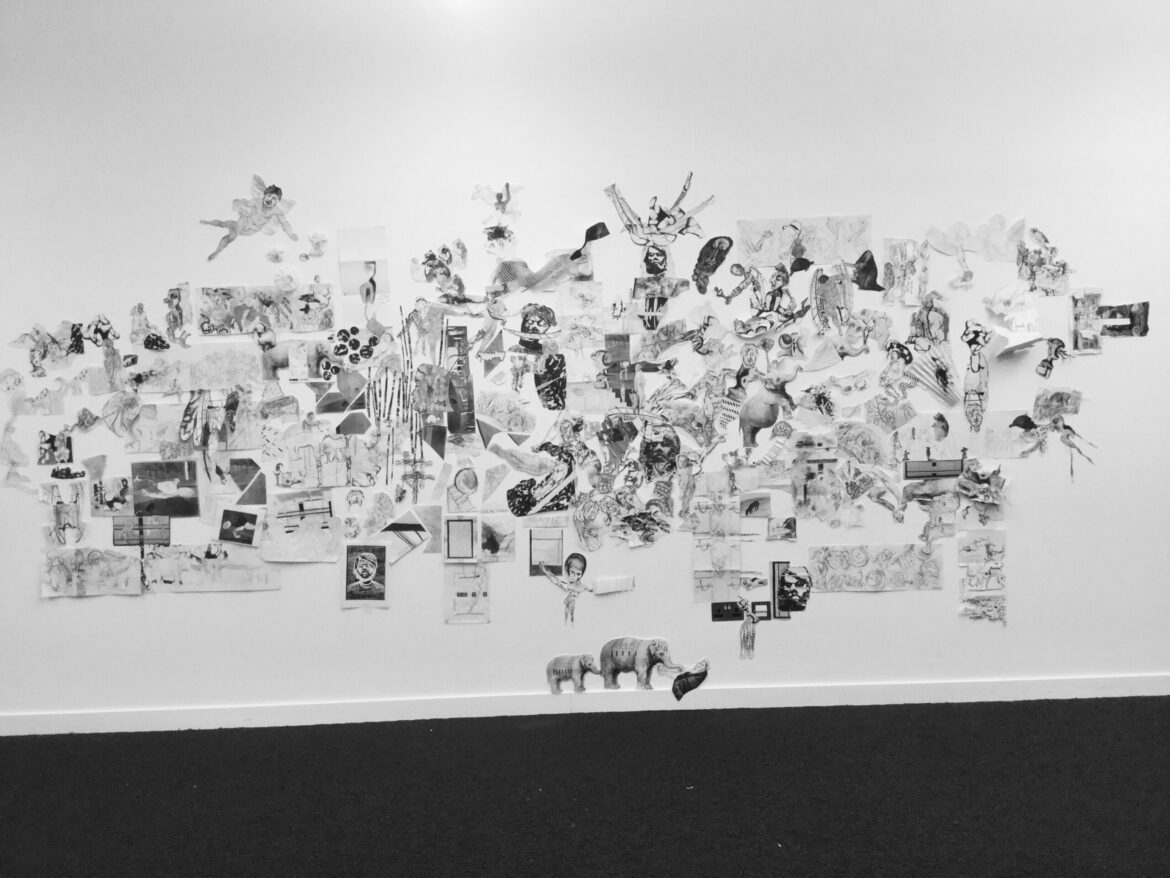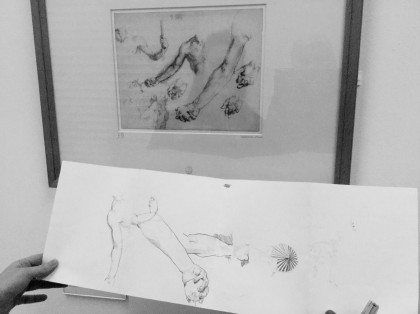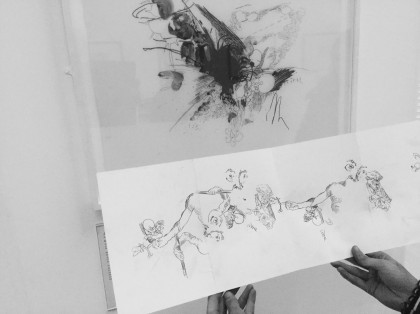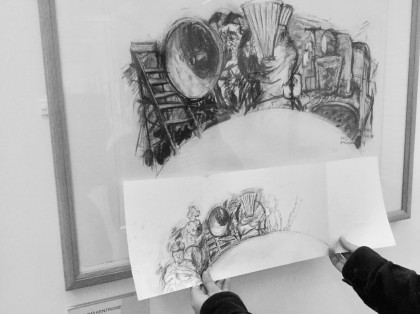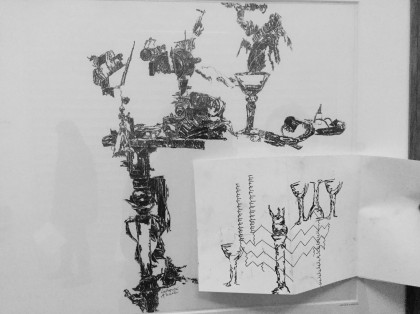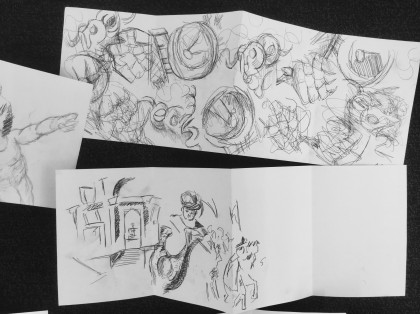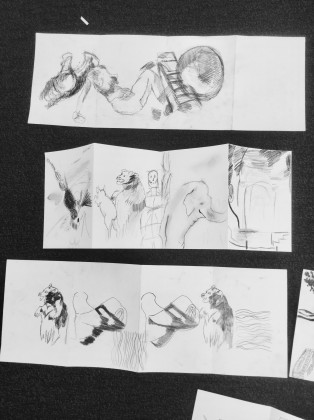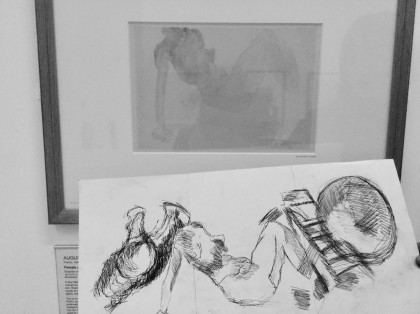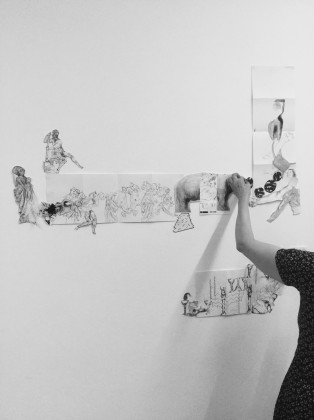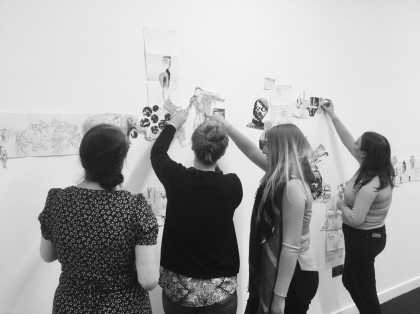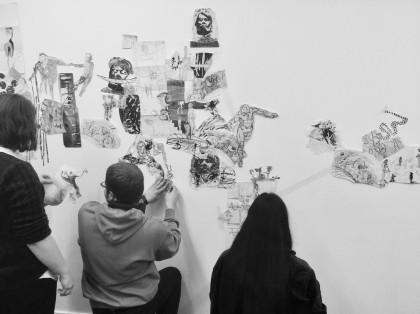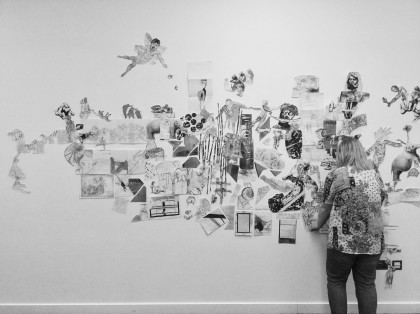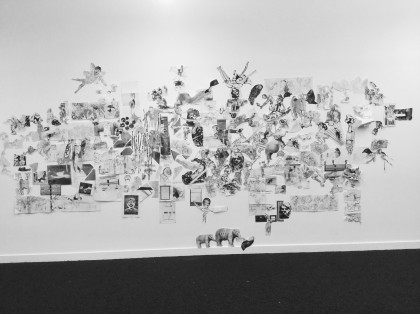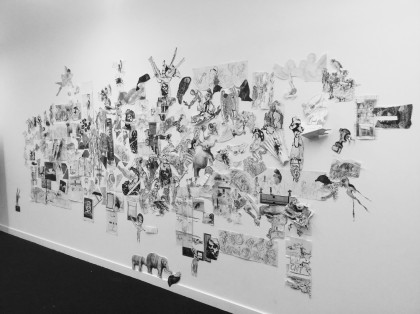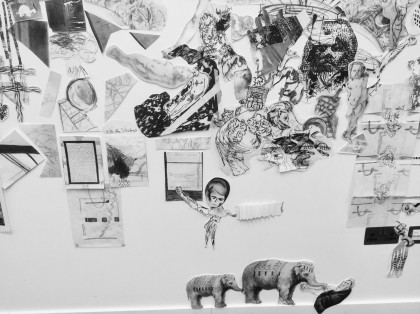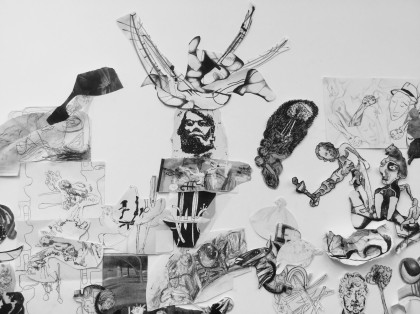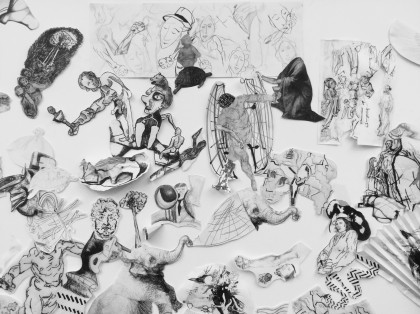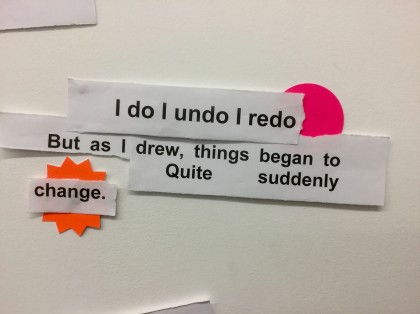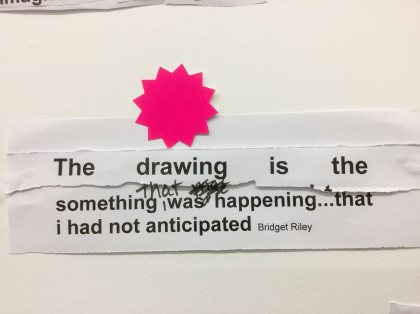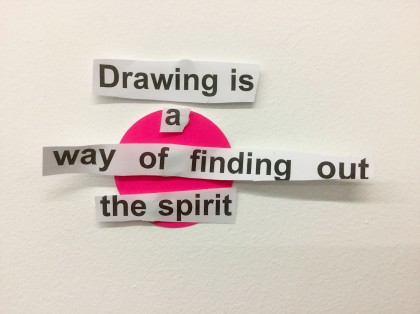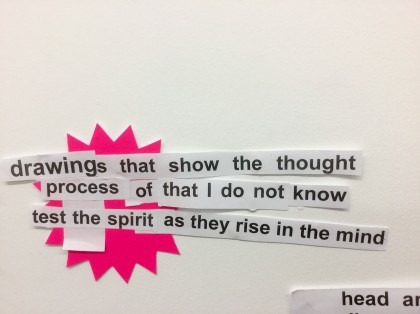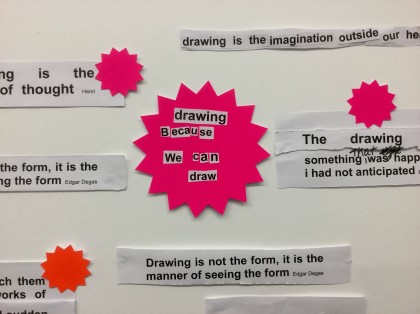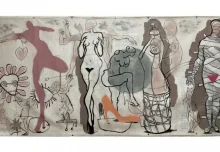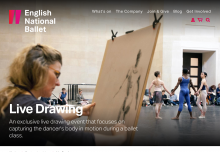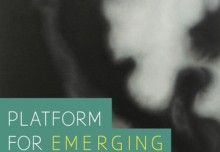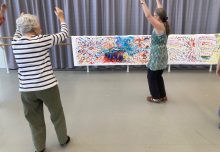I was selected to deliver the artist engagement strand of the British Museum exhibition ‘Lines of Thought’ through workshops and the development of a downloadable education pack for art and design students. The remit was to create ‘inspirational’ workshops to engage students in drawing and to promote and encourage the use of drawing in their studies. My starting point was 2 artist quotes:
‘We don’t have a USB port in our head and drawing is the most direct way we have of expressing our visual imagination to the outside world’ Grayson Perry
‘The world today is full of images, but they arn’t very memorable’ David Hockney
Initially, I invited the students to ‘take a meander’ through the exhibition and to be led by their instinctual response to various drawings, to have a visual experience rather than be led by the labeling…I then led an informal tour through the exhibition, and posed questions for discussion. The exhibition was curated thematically rather than chronologically which presented really interesting juxtapositions across history, style and genre.
My project idea was informed by the commonalities of drawing; the qualities of mark-making, drawing as thinking and as enquiry, analysis and investigation.
My questions were taken from the education pack and were often intentionally provocative in tone:
‘What motivates children to draw, why do so many children stop drawing? Is drawing a primary, creative instinct in everyone?’
‘In the face of digital technology, what is drawing’s relevance in an increasingly digital world?’
‘How is drawing as much a communication with the self, as it is communication with the viewer?’
Students then worked in the gallery on a practical task that explored mark-making. They used a concertina format to make a kind of visual journey: fragments connected up from their selected drawings. They had the option to either work freehand or to make use of carbon copy paper, tracing paper and photocopies to transcribe the drawings and to make use of conscious and intuitive decision making as well as considered as well as spontaneous processes. The speed of execution of this task was important to generate unexpected outcomes, much in the way brain storming functions as a stream of consciousness.
In this way, the students were encouraged to have a very direct and empathetic experience with the ‘hand of the artist’ through close association with the mark-making rather than with representation.
In this way, students who lacked confidence with their drawing were liberated from representation and were able to focus on just the marks, to reduce drawing to its essence, and to develop a very personal image.
It was great to see so many students drawing in a gallery and really focused on an almost forensic study of 70 master drawings…
These concertina drawings then informed the collaborative project which took place in a learning space outside the gallery. A large-scale collage evolved over 3 days, made by students from Fine Art, Textile, Illustration, Fashion and Animation courses. The students worked with photocopies, cut up and reworked with tipex, marker pens and pencil, and with their own drawings, to continue a visual journey across the wall: exciting new relationships and juxtapositions evolved between fragments to create unexpected images.
This project was intended to engage students in the creative process: to make changes, revisions and retractions, deciding what to reject being as important as what to retain. Working collaboratively with visual material placed by other people, encouraged associative thinking and the idea of drawing as a space to imagine and dream. It also of course excluded the obstacle of being too ‘precious’ over drawing, to be open to chance and possibility and questioned any single ownership of the artwork.
There was a real buzz of co-operation and collaboration in the space as the drawing-collage grew across the large wall…
Finally, the students were presented with a number of artist’s quotes on the nature of drawing and were invited to deconstruct these to make their own statements in the way of ‘concrete poetry’. These words presented disparate poetic insights into the experience of and thinking around drawing.
There were also some great feedback comments from the students:
‘People have been drawing since ancient Egypt trust me it’s not too late to improve’
‘Stop focusing on what you think it should look like, draw what you see, what you fully see’
‘Never throw away any of my ‘unfinished’ or ‘not so pretty’ pieces of work’
‘I learnt that everyone has different ideas about ‘good’ drawing – but everyone can draw in their own way’
‘Draw all of it, be brutally honest, take chances!’
‘
